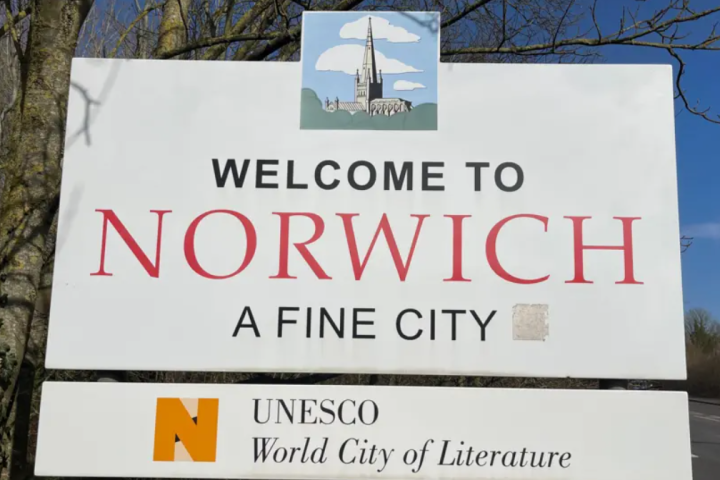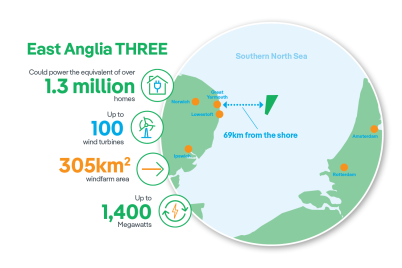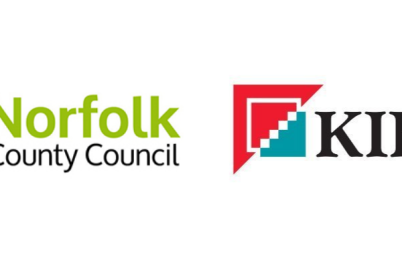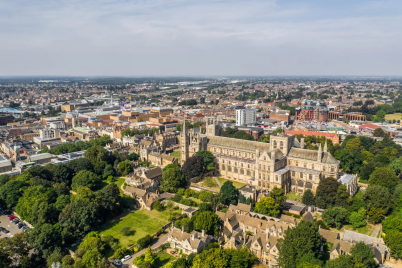Two of Norwich’s most deprived areas are set to benefit from £40 million in government investment through the Pride in Place funding in Norwich, with a focus on improving youth services, employment support and community facilities.
The Bowthorpe and West Earlham, and Heartsease and Pilling Park neighbourhoods will each receive £20 million over the next ten years as part of a national programme aimed at regenerating overlooked communities. The government has said that local residents will be able to shape how the money is spent to ensure that investment meets community needs.
Labour councillor Claire Kidman described the announcement as “absolutely ground-breaking,” adding: “Not in my time have I ever heard of any investment quite like this.” She said the funding would give local people the opportunity to develop ideas that reflected their priorities. “Ideas will be coming from communities because it’s communities who best know their areas,” she said.
The two Norwich areas were selected using data from the Index of Multiple Deprivation (IMD) and the Community Needs Index, which measure levels of poverty, access to services and overall quality of life. Kidman said targeted investment at this level could make a “really big impact” and suggested it could go towards affordable cafes, green spaces or venues for young people.
In Heartsease, local business owner Anne Martin, who runs Great Eastern Models on Plumstead Road, said improvements to public facilities were long overdue. “Over the years things get run down,” she said. “The bus stop has been run down, there’s no seating area, the railings need painting, there’s no bins, there’s no parking, there’s no toilets. The place looks shabby and if a place looks shabby people don’t care and when people don’t care they chuck litter down, they have anti-social behaviour and they don’t want to visit because they think it’s a bit of a rough and ready area.”
Daniel Childerhouse, chief executive of Future Projects, said the ten-year funding model meant the investment could deliver long-term benefits. “Bowthorpe is a place with a really strong community… but there are challenges around everyday deprivation and poverty that a lot of communities in Norwich experience but are often hidden,” he said. “There’s issues with education, training and skills in and around that area, there’s employment issues as well and there are a number of families that are really struggling financially, struggling to put food on the table and heat their homes.”
The Pride in Place programme is part of a £5 billion government investment across 339 communities in the UK. It is designed to revitalise high streets, improve public spaces and strengthen local pride. Each selected area will receive £2 million per year for a decade, while 95 others will get a one-off payment of £1.5 million.
The initiative also encourages councils to buy and repurpose disused or derelict buildings for community use, such as converting empty department stores into health centres or housing. The government has said local residents, charities and social clubs will have to be involved in deciding how money is spent before projects are approved.
Unlike the previous Levelling Up Fund, councils will not have to bid for this money. Instead, the selected neighbourhoods were identified based on deprivation rankings and existing community need.
Prime Minister Sir Keir Starmer described the programme as a major step in reversing local decline, saying: “For too long, people have watched their towns and streets decline – powerless to stop boarded-up shops and neglected parks. That ends now. We’re investing in the UK’s future, by backing the true patriots that build our communities up in neighbourhoods across every corner of the country. Because it’s people who bring pride, hope and life to our communities.”
The Pride in Place programme also includes measures to help councils tackle issues that damage high streets. Local authorities will be encouraged to block “unwanted” betting and vape shops and to take action against “fake” barbers suspected of illegal activity. The government has indicated that the Tobacco and Vapes Bill may be extended to give councils additional powers to control high street businesses.
While some have welcomed the investment, others have questioned its long-term impact. Conservative shadow communities secretary Sir James Cleverly said the funding would be “dwarfed by tax rises,” while others warned that regeneration would only succeed with proper local leadership and training.
Cathy Parker, professor of place management at Manchester Metropolitan University, said the plan had “real potential” but would require “training and support” for local leaders to deliver effective results. She said: “Town centres have to invent themselves into things that matter to people, that they can’t get online and they can’t get out of town.”
The Pride in Place funding in Norwich forms part of this wider national strategy to strengthen community identity and improve quality of life in areas most affected by deprivation. For Norwich, it represents one of the largest injections of community investment in decades — and a significant opportunity for local people to shape the future of their neighbourhoods.












